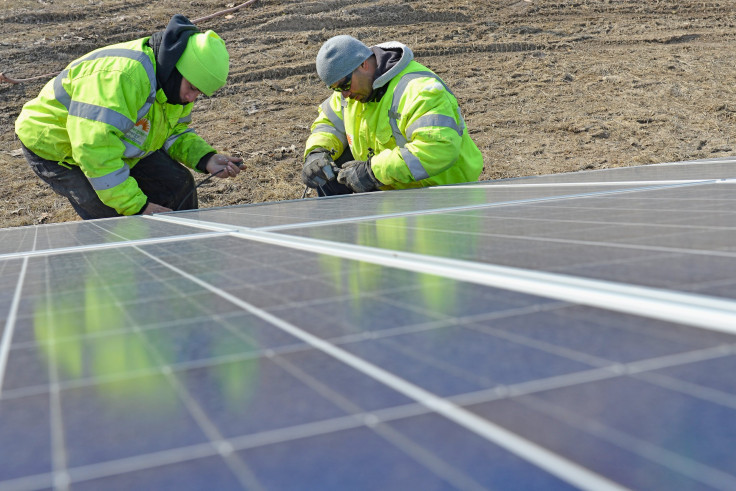Solar Power CEO Urges Lawmakers To Let Beneficial Tax Credit Expire

A tax break that’s propping up the bottom half of the U.S. solar energy is set to expire in 2016 -- and one of the market’s biggest fish says that’s totally fine. John Berger, the chief executive at Sunnova, wrote in a letter sent to U.S. lawmakers that Congress should allow the federal Investment Tax Credit, also called the ITC, to expire in 2016 as planned.
“The ITC has served its purpose,” Berger wrote.
Currently, the ITC pays 30 percent of the fees associated with installing a residential solar power system. It is scheduled to pay just 10 percent this coming year before expiring altogether at the end of 2016. That expiration could drastically reduce the number of solar power installations ordered by U.S. consumers in the coming years. According to research from Bloomberg New Energy Finance, the U.S. market for solar panels installed could drop from 11.3 gigawatts installed in 2016 to just 3.4 gigawatts installed in 2017.
That decline would put a daunting amount of pressure on Sunnova’s smaller competitors. “Can the big guys weather it? Yes, they probably can,” Rhone Resch, the president of the Solar Energy Industries Association, told the Financial Times. “It’s the small guys who won’t survive.”
Money For A Rainy Day
While Sunnova is not the market leader -- Elon Musk’s SolarCity dominates, with a 34 percent market share -- it has plenty of cash on hand to weather any storm that might be caused by the ITC’s lapse. In addition to its 30,000 U.S. clients, Sunnova announced a $250 million funding round last year, calling it the largest private funding round ever secured by a residential solar energy company. It brought total investments in the privately held company to $500 million.
"We don't need the 30 percent," Berger told Green Tech Media last year, when it announced the funding round. "We struck a deal -- we should keep the deal."
Clearing Skies
In recent years, the market for residential solar power has begun to rise in a meaningful way, springing from an estimated $3 billion in 2009 to more than $13 billion in 2014. That mark also excludes the energy generated by stand-alone solar energy power plants.
It has also been carving out larger and larger shares of the U.S.’s new energy capacity. Research published earlier this year by the Solar Energy Industries Association found that solar accounted for 32 percent of the U.S.’s new energy generating capacity, beating out renewable energy sources like wind and standbys like coal.
But those gains don’t change the fact that solar, along with all other sources of renewable energy, remain a rounding error when viewed alongside the giants of the U.S. energy market. Coal, for example, accounted for 1.6 million gigawatt hours of power in 2013, according to the U.S. Energy Information Administration. During that same period, solar energy accounted for just over 9,000 gigawatt hours.
Silver Lining
But even though it's small, and even though the ITC's expiration will be a shock to the system for U.S. solar, industry analysts appear to share Berger's conviction that the market may now be big enough to survive on its own.
“If the investment tax credit is not extended, we see it as a disruption, not a death for the industry,” Maddy Yozwiak, an analyst at Bloomberg New Energy Finance, told Utility Dive. “It will be a disruption that will take years to recover from, but the recovery is there.”
© Copyright IBTimes 2024. All rights reserved.



















